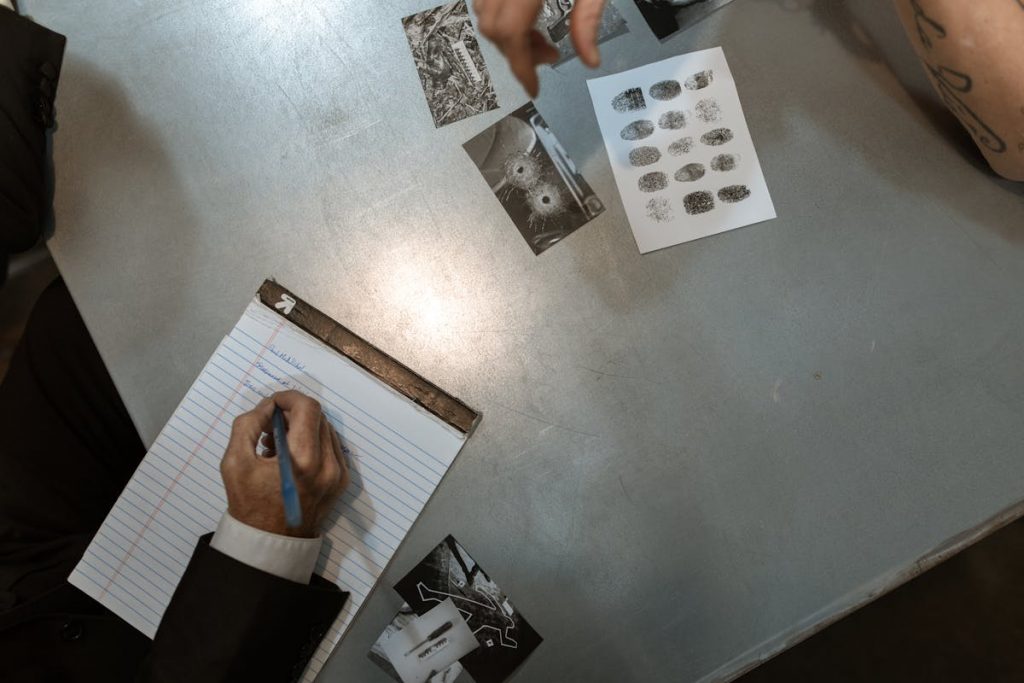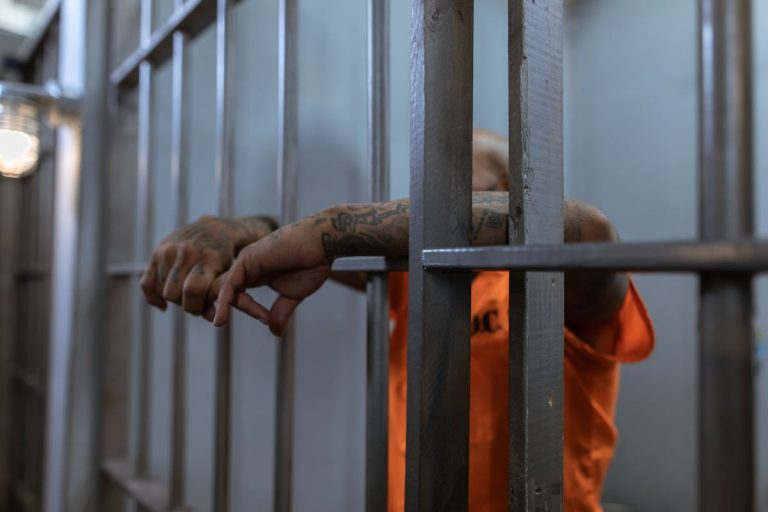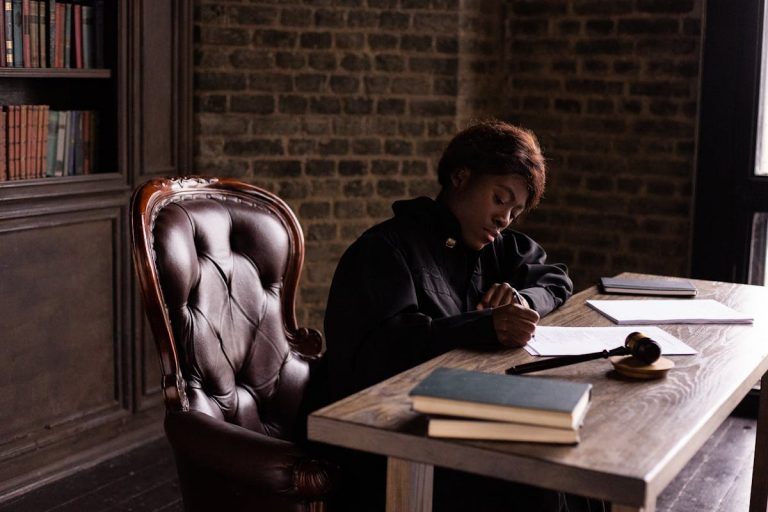Navigating the complexities of a criminal charge can be intimidating, and the first meeting with your defense attorney is a critical step in this journey. Preparation is key, encompassing not just understanding your charges but also gathering relevant evidence, identifying potential witnesses, and formulating pertinent questions. However, the importance of full disclosure, especially about any previous convictions, and clarity over fees and expectations, cannot be underestimated. These elements blend to form the foundation of an effective defense strategy. Yet, one might wonder, how does one manage all this effectively? We would be well-advised to explore further.
Understanding Your Charges
In the domain of criminal law, comprehending the nature and specifics of your charges is the first essential step towards a robust defense strategy. A wholesome understanding of the legal terminology involved, and the implications of the charges laid against you, can help to demystify the complex criminal justice system and prepare you for the legal journey ahead.
Charges in criminal law are more than just mere allegations; they hold significant implications that can impact your life in multiple ways. The severity of the charges, the potential penalties, and their impact on your life and reputation are aspects that need meticulous consideration. Understanding the charges helps to identify the possible legal defenses and negotiate plea bargains, if applicable.
Legal terminology, often perceived as complex and intimidating, is a critical aspect of understanding your charges. Familiarity with terms such as ‘indictment’, ‘arraignment’, ‘misdemeanor’, or ‘felony’, and their implications can guide your interactions with your defense attorney and the court.
Documenting the Incident
After gaining a solid grasp of the legal terminology and implications of your charges, the next vital step is to thoroughly document the incident in question. This process involves creating an extensive incident timeline and detailing every aspect of the event.
The first part of this process is to establish the incident timeline. This includes the date, time, and location of the incident. It’s also important to note any significant events leading up to the incident and any subsequent actions taken.
Next, you must investigate the incident details. This includes specifics about what occurred, how it occurred, and who was involved. It’s also essential to note any potential witnesses and their contact information.
To further clarify this process, consider the following steps:
- Write an extensive incident timeline including dates, times, and locations.
- Detail the incident, including specifics about what occurred and how it occurred.
- Identify all parties involved in the incident, including potential witnesses.
- Collect and document all relevant contact information.
Gathering Relevant Evidence
In the context of criminal defense, the process of gathering relevant evidence is multifaceted and essential. It is important to comprehend the significance of physical evidence, which can provide tangible facts pertinent to the case. In addition, understanding documentary evidence and the role of digital evidence is equally important, as they often contain key information that can influence the outcome of the trial.
Importance of Physical Evidence
Collecting physical evidence plays an essential role in the domain of criminal defense. It is the tangible proof that can either strengthen or weaken a case, depending on the circumstances. The process involves meticulous forensic analysis and strict evidence preservation to maintain its credibility.
The importance of physical evidence in the criminal defense field can be highlighted through several points:
- Forensic Analysis: This involves scientific methods used to examine physical evidence. The results can provide vital details about the crime scene, the suspect, or the victim, supporting the defense’s arguments.
- Evidence Preservation: This guarantees the integrity of the physical evidence. It prevents contamination, loss, or destruction that could potentially affect the outcome of the case.
- Credibility: Physical evidence is viewed as reliable because it is less likely to be subject to human error or bias. This enhances the credibility of the defense’s arguments.
- Case Resolution: The presence or absence of physical evidence can greatly impact the resolution of a case. It can lead to either the acquittal or conviction of the defendant.
Understanding the importance of physical evidence is the first step towards building a robust defense strategy.
Understanding Documentary Evidence
Just as physical evidence holds considerable sway in the sphere of criminal defense, documentary evidence is equally influential and requires careful handling. These evidence types, often existing in various documentary formats, can provide an invaluable source of information and can considerably impact the outcomes of criminal cases.
Documentary evidence is any evidence introduced at a trial in the form of documents. Although this term is most widely understood to mean writings on paper (such as an invoice, a contract or a will), it has come to encompass writings of all types, including such things as maps, charts, graphs, and photographs.
The key to effectively utilizing documentary evidence lies in the meticulous gathering and presentation of these documents. One must understand that each piece of documentary evidence must be relevant, reliable, and above all, admissible in court. This involves ensuring the document is original or a certified copy, free of alterations and that it proves its point without raising doubts about its authenticity or relevance.
Role of Digital Evidence
As we explore deeper into the domain of criminal defense, digital evidence is emerging as a critical component of many cases. Today’s world is largely digital, and that reality is increasingly reflected in the courtroom. Evidence that was once physical is now often digital, and this shift has profound implications for criminal defense.
Digital evidence can include various forms of data that provide valuable insights into a case. This could include:
- Digital footprints left behind on social media platforms or internet searches which can paint a picture about a person’s behavior, interests, or habits.
- Electronic surveillance data captured from security systems, both public and private, which can either corroborate or contradict a defendant’s or witness’s account.
- Email or text message exchanges that can reveal individuals’ intentions, plans, or state of mind.
- Financial transactions tracked digitally that can expose fraudulent activities or illicit money transfers.
The role of digital evidence in criminal defense is increasingly critical. It requires detailed examination, careful analysis, and expert interpretation. Meeting your defense lawyer with an extensive understanding of your digital footprint can be a significant step towards building a robust defense strategy.

Listing Potential Witnesses
The process of listing potential witnesses is central to the development of a robust defense strategy. This requires not only the identification of relevant witnesses who can provide essential insights into the case but also the systematic documentation of their statements. This approach guarantees that every piece of information, which could be instrumental in shaping the outcome of the case, is meticulously accounted for.
Identifying Relevant Witnesses
In your journey with a criminal defense lawyer, identifying relevant witnesses often unfolds as a critical phase. This stage involves rigorous analysis and meticulous detail to guarantee the most credible and available witnesses are selected to support your defense.
Several factors influence the selection of relevant witnesses:
- Witness credibility: The credibility of a witness is paramount. A credible witness is likely to be trusted by the jury and can, consequently, greatly impact the outcome of the case. For this reason, your lawyer must thoroughly investigate and assess the credibility of potential witnesses.
- Witness availability: Simply put, a witness must be available to testify. Hence, their geographical location, health, and willingness to appear in court become critical considerations.
- Witness relevance: The information the witness can provide must be directly relevant to your case. Irrelevant testimony can confuse issues and is often disregarded by the court.
- Witness relationship: The relationship between you and the witness can affect their perceived credibility. An unbiased witness with no personal ties to you is usually viewed as more reliable.
Documenting Witness Statements
Having identified and evaluated potential witnesses, the next step involves careful documentation of their statements. This process requires meticulous attention to detail, ensuring statement accuracy and capturing each witness’s unique perspective on the situation at hand.
Firstly, the timing of documentations is essential. Statements should be recorded as close to the event as possible to minimize memory distortion. Next, the method of recording is also important. Audio or video recordings, when possible, are preferred over written statements. This is because they can capture nuances such as tone, hesitations, and emotions that written statements may fail to convey.
Witness credibility is another vital aspect to bear in mind during documentation. Evaluate the witness’s ability to accurately recall events, their relationship to the parties involved, and any potential biases. This information can greatly impact how their statements are treated in court.
Preparing Your Questions
Proper groundwork for your initial meeting with a criminal defense lawyer can make all the difference in forming a well-founded legal strategy. A key element of this preparation involves formulating questions to ask your lawyer. These questions will not only guarantee that you understand the process, but will also provide your lawyer with important insights into your case.
When preparing your questions, consider various question types and prioritize topics. Your questions should be specific, relevant, and targeted. They should aim to gather information about your lawyer’s expertise, your legal options, potential challenges, and the likely timeline of your case.
Below are examples of questions that could be useful:
- What type of experience do you have with cases similar to mine?
- What are my legal options and potential defense strategies?
- What are the potential challenges and how will you address them?
- What is the estimated timeline for my case?
Disclosing Prior Convictions
After formulating your questions, another significant step in your preparation for meeting a criminal defense lawyer involves disclosing any prior convictions. This task may seem intimidating, but it is vital for your lawyer to have a clear understanding of your legal history to construct an effective defense strategy.
Prior convictions, irrespective of their severity or the jurisdiction where they occurred, can have profound legal implications on your current case. They can influence the severity of the charges, the penalties if convicted, and even the way your character is portrayed in the courtroom. In some instances, prior convictions may elevate a misdemeanor to a felony, or instigate mandatory minimum sentences.
Therefore, it is essential to be forthcoming about your past encounters with the law. Do not withhold any information, believing that it might be insignificant or that it won’t be discovered. In an era of advanced technology and extensive databases, undisclosed convictions can be easily unearthed, which could potentially undermine the credibility of your defense.
Remember that honesty is key in your relationship with your lawyer. By fully disclosing all prior convictions, you provide your attorney with the tools required to navigate the legal implications and build a robust defense.
Discussing Legal Fees
Invariably, the matter of legal fees surfaces during your initial consultation with a criminal defense lawyer. This topic can be uncomfortable, but it is an essential aspect to address early on. Transparency is key; consequently, it’s important to discuss and comprehend the lawyer’s fee structure, the potential for negotiating fees, and whether they offer payment plans.
Here are some specific topics to discuss regarding legal fees:
- Hourly rate versus flat fee: Many criminal defense lawyers charge by the hour, but some may offer a flat fee for your case. Understand the benefits and drawbacks of each.
- Retainer agreement: This outlines the cost of services and how they are calculated. Make sure you thoroughly read and understand this document before signing.
- Negotiating fees: Some lawyers are open to negotiation. Don’t be afraid to discuss this option.
- Payment plans: If upfront payment is a challenge, inquire about the availability of payment plans. This option can make legal services more accessible.
Being informed about these matters will help you make an educated decision about hiring a criminal defense lawyer, without jeopardizing your financial stability.
Setting Expectations and Goals
Maneuvering the legal landscape requires the establishment of clear expectations and well-defined goals. This is especially significant when meeting a criminal defense lawyer. A frank discussion regarding client expectations and the intended legal strategy is vital to achieve desired outcomes.
Client expectations are central to the conversation. Understanding what the client hopes to achieve legally is paramount. This could range from seeking a dismissal, plea bargain, or securing a favorable trial verdict. It’s essential to recognize that expectations should be realistically aligned with the nature and gravity of the charges.
The lawyer should also detail the legal strategy that will be employed in the client’s defense. This includes outlining the steps that will be taken, explaining the legal process, and discussing potential challenges that may arise. The strategy should be designed to meet the client’s goals, bearing in mind the unique elements of the case.
Frequently Asked Questions
How Frequently Will We Communicate About My Cases Progress?
Communication expectations should be established during your initial consultation. Typically, a defense lawyer will provide regular case updates, either weekly or bi-weekly, depending on the complexity and progression of your legal situation.
Do You Have Experience With Cases Similar to Mine?
Yes, I have extensive experience in similar cases. During our case evaluation, we’ll discuss this in detail, along with potential legal fees. It’s essential to align experience with the specifics of your individual situation.
What Is Your Success Rate in Dealing With Criminal Defense Cases?
Inquiring about a lawyer’s success rate in criminal defense cases is essential. It involves reviewing client testimonials and case outcomes, providing insights into their expertise, strategic approach, and overall effectiveness in handling similar cases.
How Long Do You Estimate the Process Will Take?
The case timeline in criminal defense matters varies greatly, influenced by factors like case complexity and court schedules. Expected delays may arise due to negotiation or trial preparation, making accurate estimations challenging.
What Is Your Approach or Strategy for My Defense?
A defense strategy involves a thorough evidence evaluation, determining its strength or weakness. This analysis informs potential plea options, such as contesting the charges or negotiating for reduced penalties, tailored to your specific circumstances.





